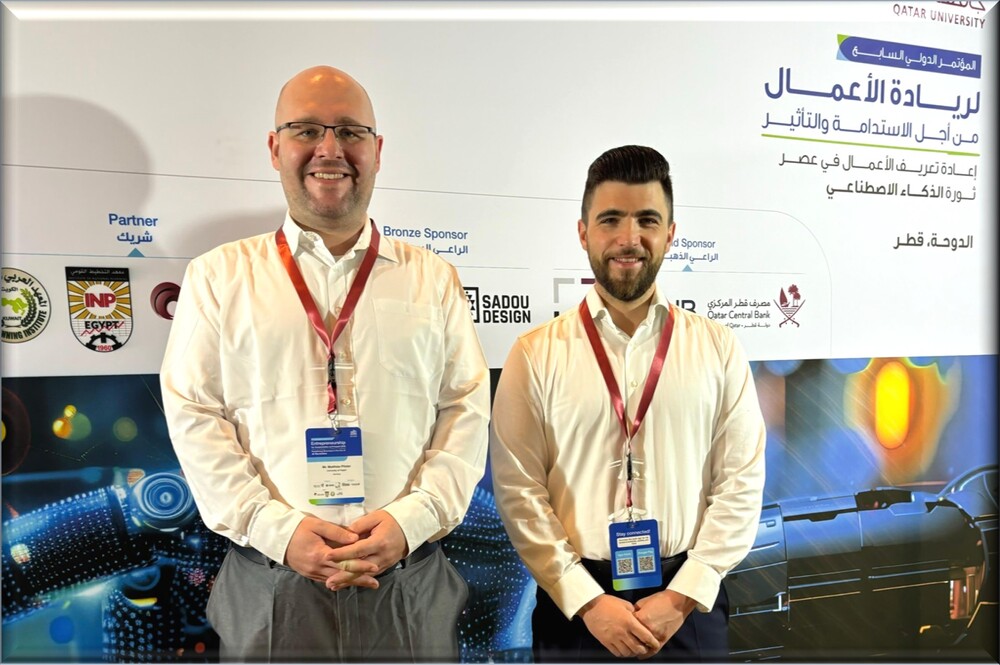Aktuelles
ESI-Konferenz in Doha
ESI Conference in Doha
[28.11.2024]Lehrstuhl mit zwei Beiträgen auf der ESI 2024 vertreten
Chair represented with two presentations at ESI 2024
Die 7th International Conference on Entrepreneurship for Sustainability & Impact (ESI) an der Qatar University in Doha ist soeben zu Ende gegangen. Der Lehrstuhl war mit zwei Beiträgen verteten.
Matthias Pfister hatte das Thema "The Transformative Impact of Artificial Intelligence on Management Accounting Practices". Der Vortrag beschäftigte sich damit, wie digitale Technologien wie IoT, Cloud Computing und KI das Management Accounting transformieren, indem sie Prozesse wie Planung, Budgetierung, Investitionsmanagement und Reporting durch Automatisierung, Echtzeitanalysen und erhöhte Datenqualität effizienter und strategischer gestalten.
Kristopher Pantani hatte das Thema „The Future of Testing: Exam Digitalization in Higher Education”. Der Vortrag beleuchtete, welche Anforderungen bei der digitalen Prüfungserstellung zu beachten sind und welche Eigenschaften digitale Prüfungssysteme aufweisen sollten. Dabei wird die Wahrnehmung digitaler Prüfungen durch Studierende, Lehrende und die Verwaltung analysiert, um Akzeptanzprobleme und Herausforderungen zu identifizieren.
Wir danken den Veranstaltern sowie dem gesamten Orga-Team für die gelungene Konferenz!
The 7th International Conference on Entrepreneurship for Sustainability & Impact (ESI) at Qatar University in Doha has just come to an end. The Chair was represented with two contributions.
Matthias Pfister's topic was “The Transformative Impact of Artificial Intelligence on Management Accounting Practices”. The presentation looked at how digital technologies such as IoT, cloud computing and AI are transforming management accounting by making processes such as planning, budgeting, investment management and reporting more efficient and strategic through automation, real-time analysis and increased data quality.
Kristopher Pantani's topic was “The Future of Testing: Exam Digitalization in Higher Education”. The presentation highlighted the requirements that need to be considered when creating digital examinations and the features that digital examination systems should have. It analyzed the perception of digital examinations by students, lecturers and the administration in order to identify acceptance problems and challenges.
We would like to thank the organizers and the entire organizing team for the successful conference!



